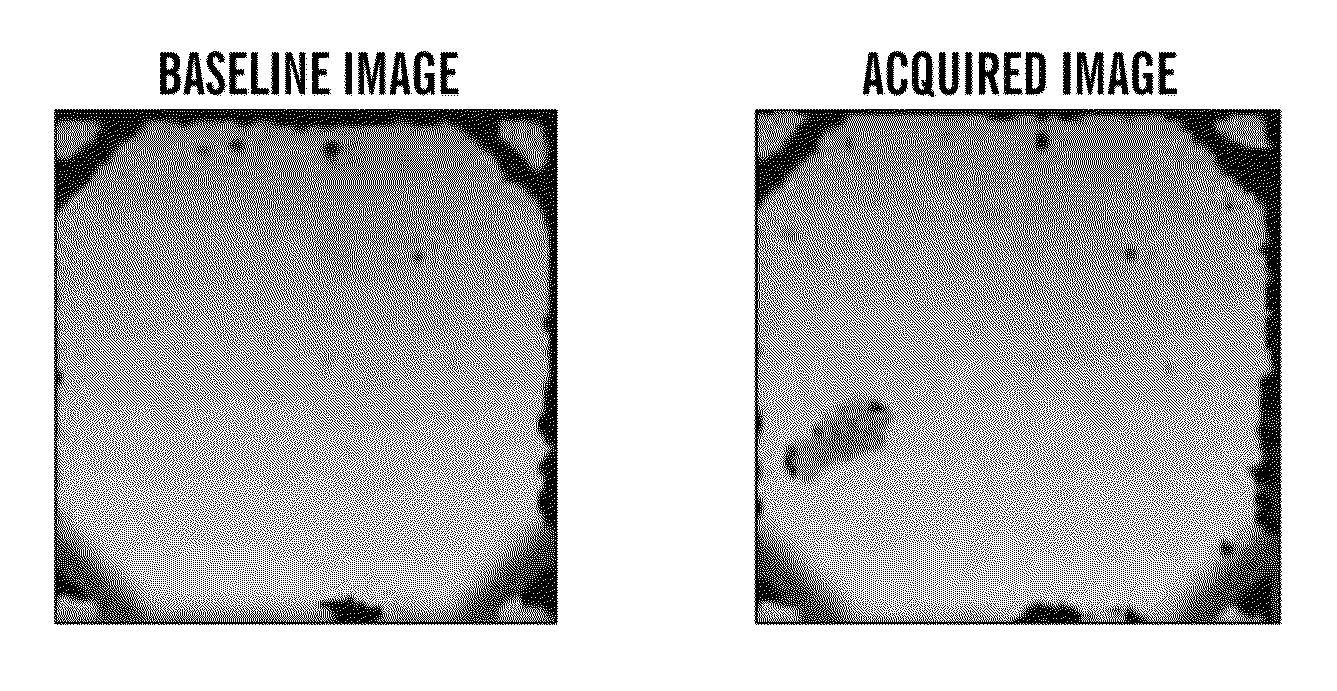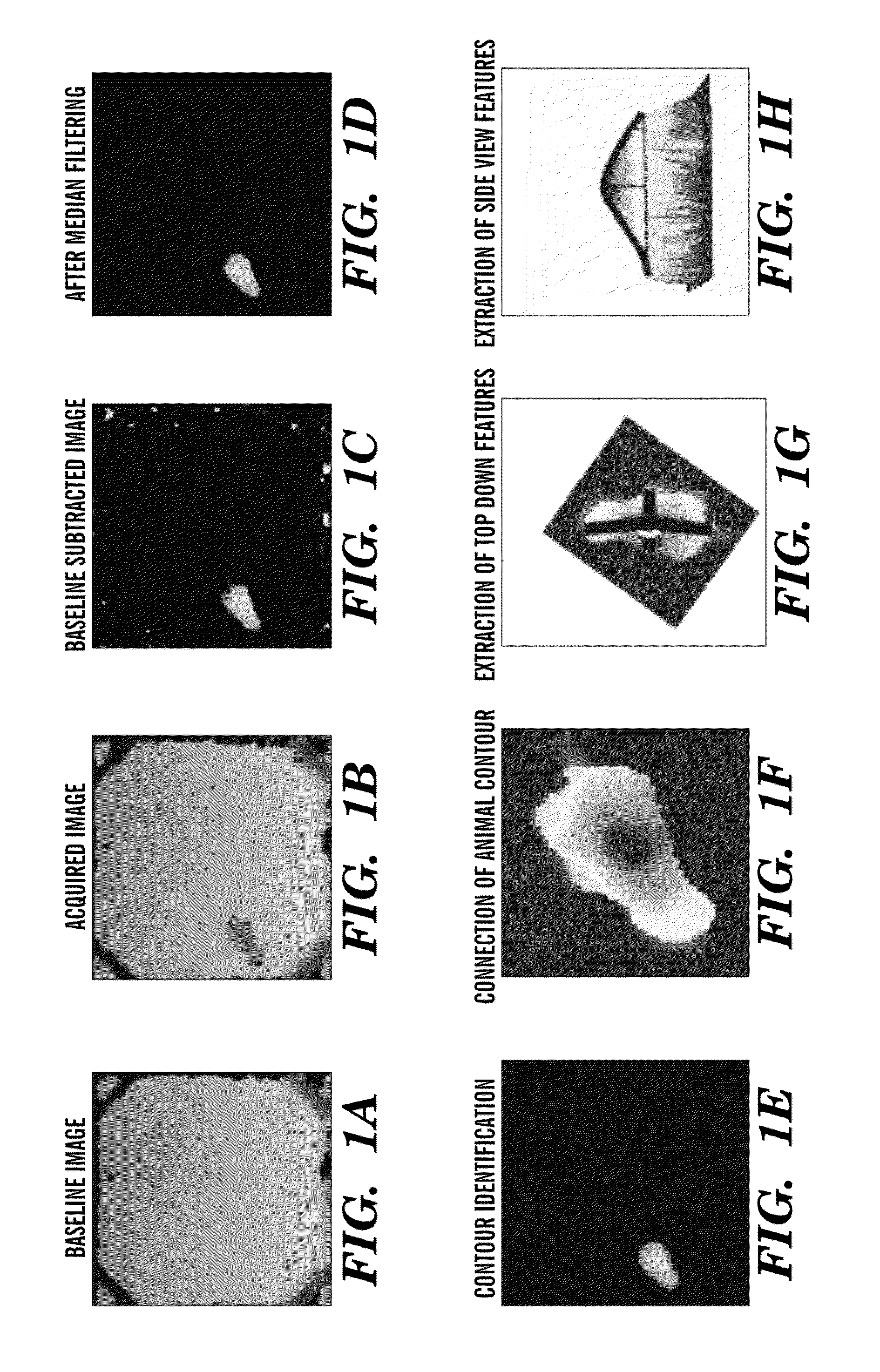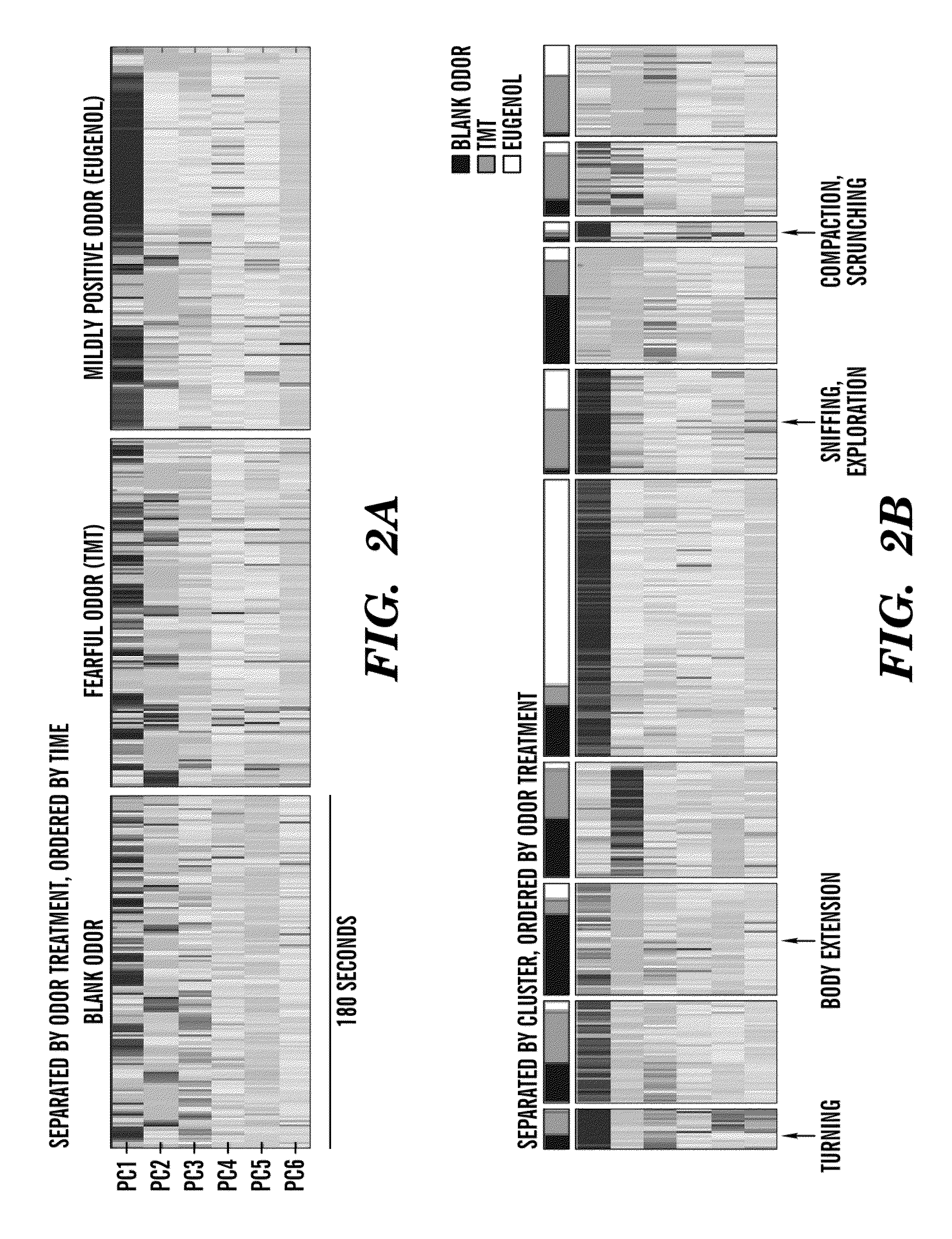System and method for automatically discovering, characterizing, classifying and semi-automatically labeling animal behavior and quantitative phenotyping of behaviors in animals
a technology of automatic discovery and classification, applied in the field of automatic discovery, characterizing, classifying and semi-automatic labeling animal behavior and quantitative phenotyping of animal behavior, can solve the problems of limiting throughput, limiting reliability and reproducibility, and limiting reliability, so as to expand the robustness of semi-automated rodent phenotyping, rapid and accurate classification of animal behavior, and easy adaptation
- Summary
- Abstract
- Description
- Claims
- Application Information
AI Technical Summary
Benefits of technology
Problems solved by technology
Method used
Image
Examples
Embodiment Construction
[0074]It should be understood that this invention is not limited to the particular methodology, protocols, and the like, described herein and as such may vary. The terminology used herein is for the purpose of describing particular embodiments only, and is not intended to limit the scope of the present invention, which is defined solely by the claims.
[0075]As used herein and in the claims, the singular forms include the plural reference and vice versa unless the context clearly indicates otherwise. Other than in the operating examples, or where otherwise indicated, all numbers expressing quantities used herein should be understood as modified in all instances by the term “about.”
[0076]All publications identified are expressly incorporated herein by reference for the purpose of describing and disclosing, for example, the methodologies described in such publications that might be used in connection with the present invention. These publications are provided solely for their disclosure...
PUM
 Login to View More
Login to View More Abstract
Description
Claims
Application Information
 Login to View More
Login to View More - R&D
- Intellectual Property
- Life Sciences
- Materials
- Tech Scout
- Unparalleled Data Quality
- Higher Quality Content
- 60% Fewer Hallucinations
Browse by: Latest US Patents, China's latest patents, Technical Efficacy Thesaurus, Application Domain, Technology Topic, Popular Technical Reports.
© 2025 PatSnap. All rights reserved.Legal|Privacy policy|Modern Slavery Act Transparency Statement|Sitemap|About US| Contact US: help@patsnap.com



